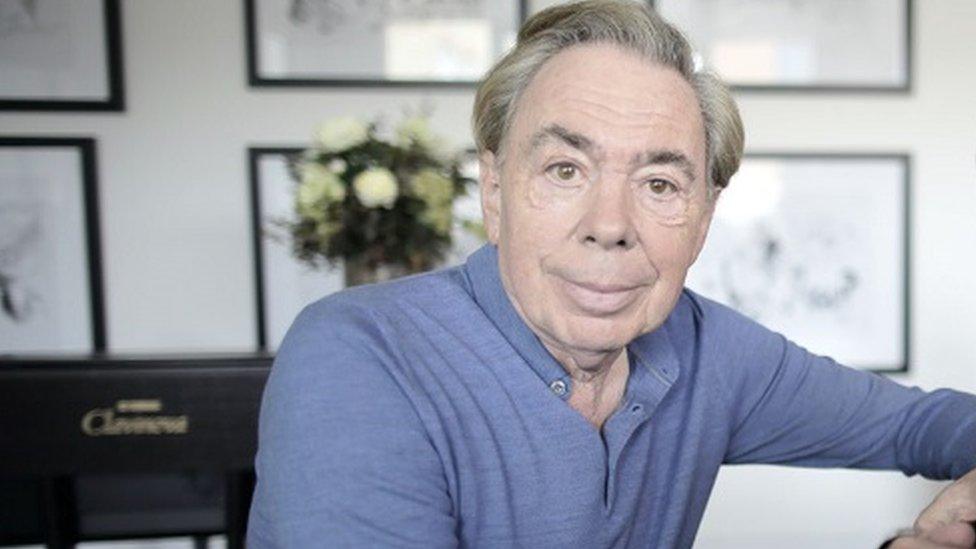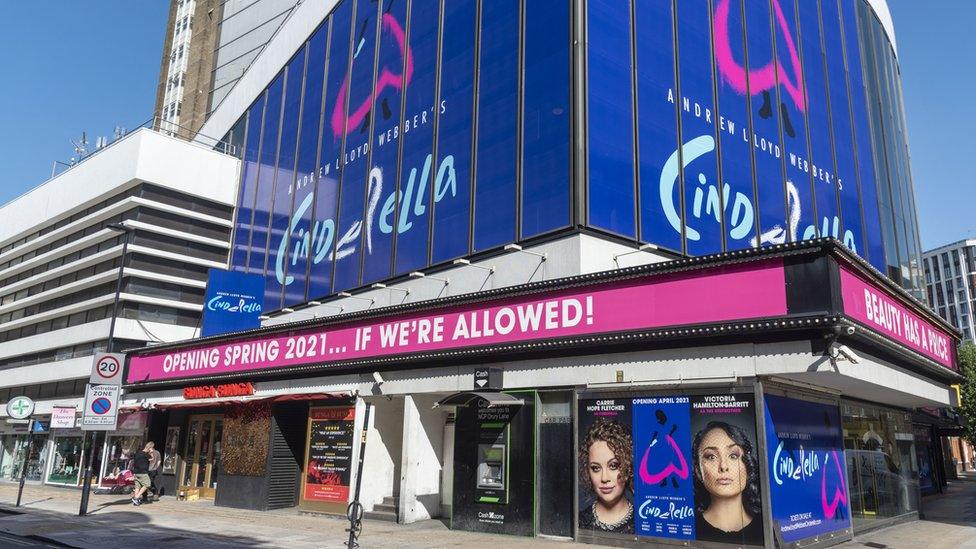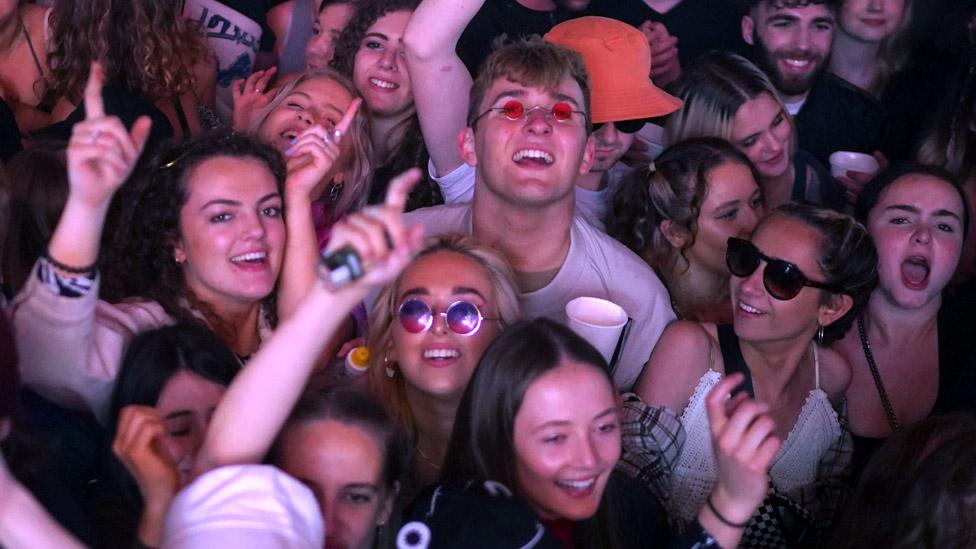Andrew Lloyd Webber rejects PM's offer for Cinderella to be Covid pilot
- Published

Andrew Lloyd Webber is the owner of seven London theatres
Andrew Lloyd Webber has rejected Prime Minister Boris Johnson's offer to add his new musical Cinderella to a pilot scheme for full-capacity live events.
The PM said earlier this week he was in talks with the theatre impresario.
But Lord Lloyd-Webber said on Friday the theatre industry had been treated as "an afterthought and undervalued".
Last week, he said he was determined to open his show to a full house on 25 June, even if he risked being arrested. However, he has now rowed back on that.
On Monday, the government confirmed that it would not lift all Covid restrictions until at least 19 July.
After rejecting the option to be one of the official pilot events, Lord Lloyd-Webber confirmed the show would open next week with a 50% capacity, the current legal limit.
If he did open with a full theatre, it "would be very likely that every member of my cast, crew and orchestra, the front and backstage staff, plus our loyal audience members, could be individually fined £500, which I couldn't possibly risk", he said.
"If it were just me, I would happily risk arrest and fines to make a stand and lead the live music and theatre industry back to the full capacities we so desperately need."
He said would go ahead with a socially-distanced audience at the Gillian Lynne Theatre in London's West End because he was not able to look his "young cast and crew in the eyes to tell them we were delaying or closing down".
Allow X content?
This article contains content provided by X. We ask for your permission before anything is loaded, as they may be using cookies and other technologies. You may want to read X’s cookie policy, external and privacy policy, external before accepting. To view this content choose ‘accept and continue’.
He said he had turned down the pilot because the offer was not open to other performances.
"I have made it crystal clear that I would only be able to participate if others were involved and the rest of the industry - theatre and music - were treated equally," he said. "This has not been confirmed to me."
He continued: "It has become clear that, while sporting events like Wimbledon had obviously been working with the government for some time on this pilot, and were even able to start selling tickets yesterday, the theatre industry and its audiences is, once again, an afterthought and undervalued."

A defiant announcement was put on the front of the Gillian Lynne Theatre in London
The government said it was "disappointed" that he had decided not to take part in the official pilot events, which would have allowed him to have the venue 75% full, rising to 100%.
"We are disappointed that Lord Lloyd Webber has decided not to take part in the Events Research Programme, having engaged with his team on exactly the same basis as a wide range of other cultural and sporting events," a spokesperson said.
"We will be setting out details of the next stage of the programme very shortly, once all public health considerations have been finalised, and this will include a number of other theatres. This research will build on successful pilot events in the arts, music and sport sectors."
The government pointed out that events including outdoor gigs, club nights, the Brit Awards as well as the Crucible theatre had already been part of the scheme.
Performing arts 'devastated'
Last year, Lord Lloyd Webber said it was economically "impossible" to run theatres with social distancing.
Reacting to his latest comments, Greg Parmley, chief executive of live music trade association Live, said: "The live music industry has spent months participating and paying for pilot events so we could reopen at full capacity safety.
"These events were a huge success and show, alongside every other international pilot, that with the right mitigations full capacity live events are safe.
"Despite this the government has refused to publish this data, forced us to remain closed and then tried to hand-pick a number of high profile events to go ahead whilst the rest of our industries are devastated."

Follow us on Facebook, external or on Twitter @BBCNewsEnts, external. If you have a story suggestion email entertainment.news@bbc.co.uk, external.
Related topics
- Published15 June 2021

- Published9 June 2021
